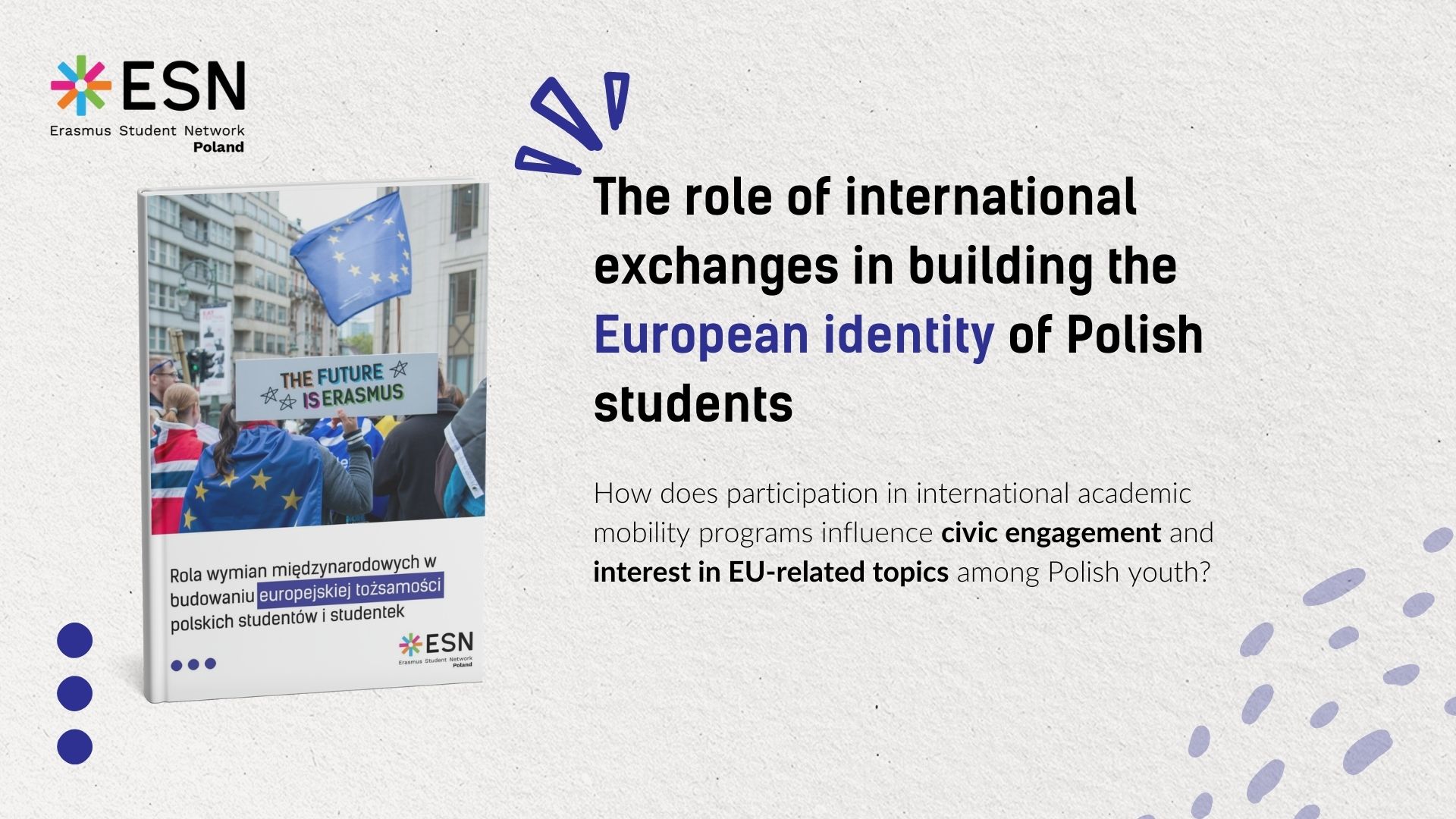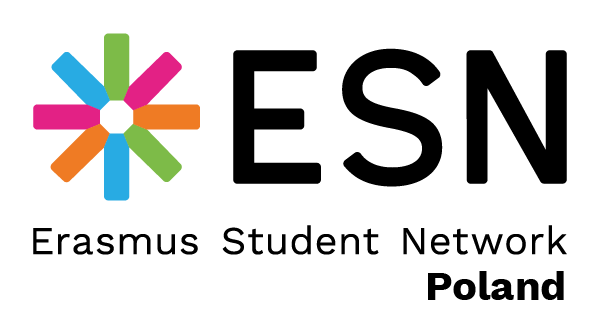The role of international exchanges in building the European identity of Polish students
At the very beginning of Poland's Presidency of the Council of the European Union, it is worth reflecting on a crucial topic: the active citizenship of young Poles, their sense of belonging to the European Union, and the role the Erasmus+ programme plays in shaping these attitudes. From the perspective of a member state that has benefited from European integration for the past twenty years, understanding the factors influencing young people’s civic engagement and their interest in shared European values and policies is of great importance.

In response to these needs, Erasmus Student Network Poland developed the report The role of international exchanges in building the European identity of Polish students, based on the findings of the ESNsurvey research project conducted, among others, with Polish students participating in the Erasmus+ programme. The main aim of the report is to demonstrate that participation in international academic mobility programmes, especially Erasmus+, has a positive impact on increasing civic engagement and raising interest in EU-related topics among Polish youth.
The report discusses the following issues:
- Civic belonging before and after mobility – an analysis of the change in students' sense of belonging to the European community as a result of their participation in mobility programmes.
- The importance of EU policies – an evaluation of how programmes such as Erasmus+ enhance young people’s awareness of EU policies and activities
- Voting intentions in the 2024 European Parliament elections – an examination of students' declared readiness to participate in elections and the role international exchanges played in fostering interest in democratic processes.
Key Findings
Building a sense of belonging and civic identity
Participation in mobility programmes such as Erasmus+ fosters the development of a sense of belonging to the European community. Students participating in exchanges were more likely to identify themselves as citizens of the European Union. This could be attributed to their experiences in multicultural academic environments and opportunities for international collaboration. European identity is perceived here not only as formal membership in the EU but also as a willingness to act for the common good, support democratic values, and engage in cross-border cooperation.
Increased interest in EU policies
The report highlights that international educational experiences result in a better understanding of both the challenges and opportunities associated with the functioning of the European Union. Participants in exchanges demonstrated greater interest in EU policies, particularly those related to environmental protection, educational development, and international cooperation. Furthermore, they also exhibited a deeper understanding of how EU institutions operate and how to engage in European-level civic initiatives.
Enhanced engagement in democratic processes
One of the most significant findings of the study is that participation in the Erasmus+ programme correlates with a higher level of declared engagement in democratic processes. Students who participated in international exchanges were more likely to express readiness to vote in the 2024 European Parliament elections. Notably, their interest in the elections and broadly understood democratic topics was evident long before the official election campaign began, indicating a lasting impact of international experiences on their civic attitudes.
-------------------------------------------------
ESNsurvey is a Europe-wide research project conducted by Erasmus Student Network, focusing on various aspects of international academic mobility. It is one of the largest research initiatives of its kind carried out by a student organisation. Since its first edition in 2005, ESNsurvey has served as an inspiration for ESN’s efforts to enhance the quality of student mobility.

